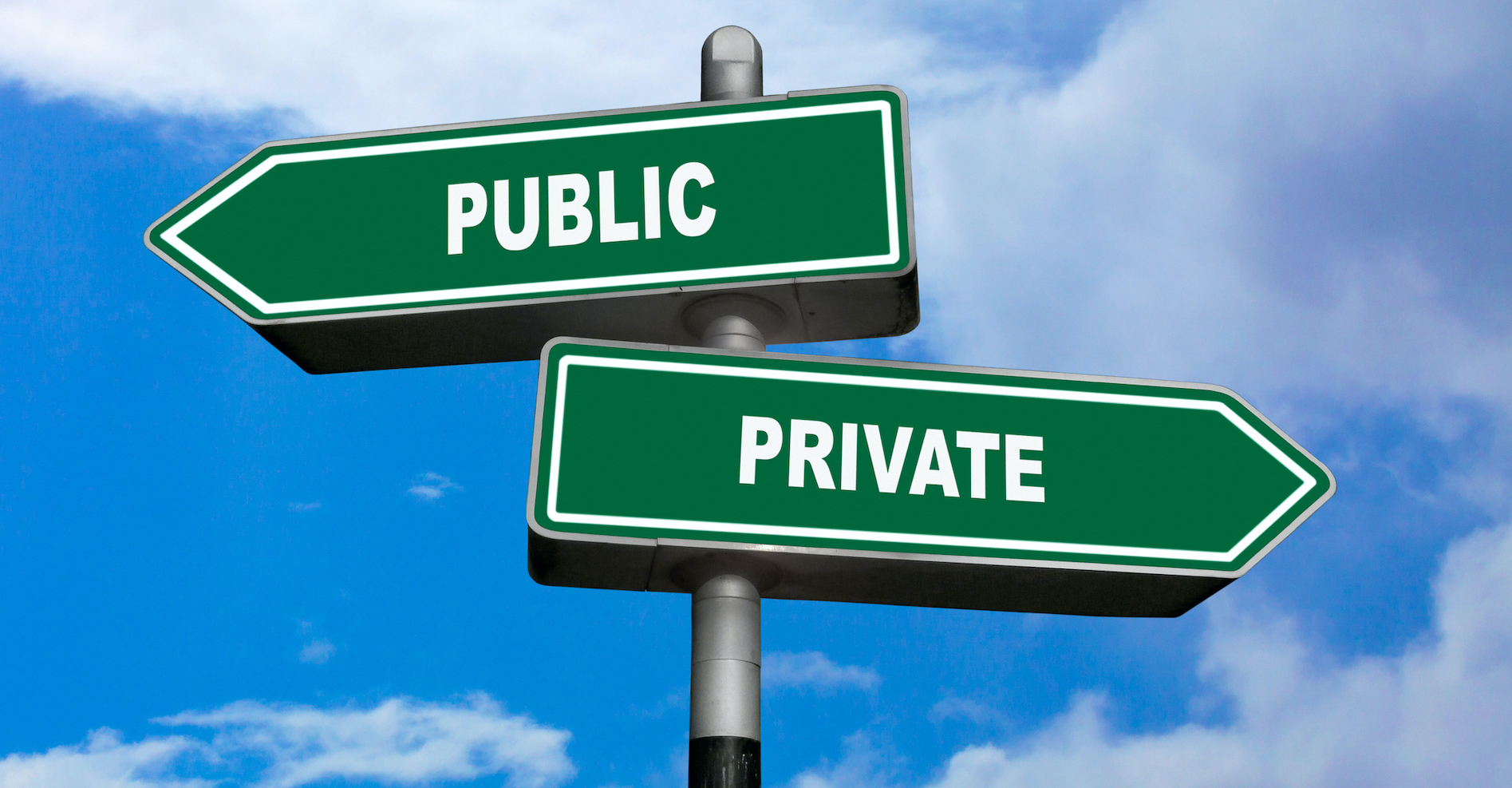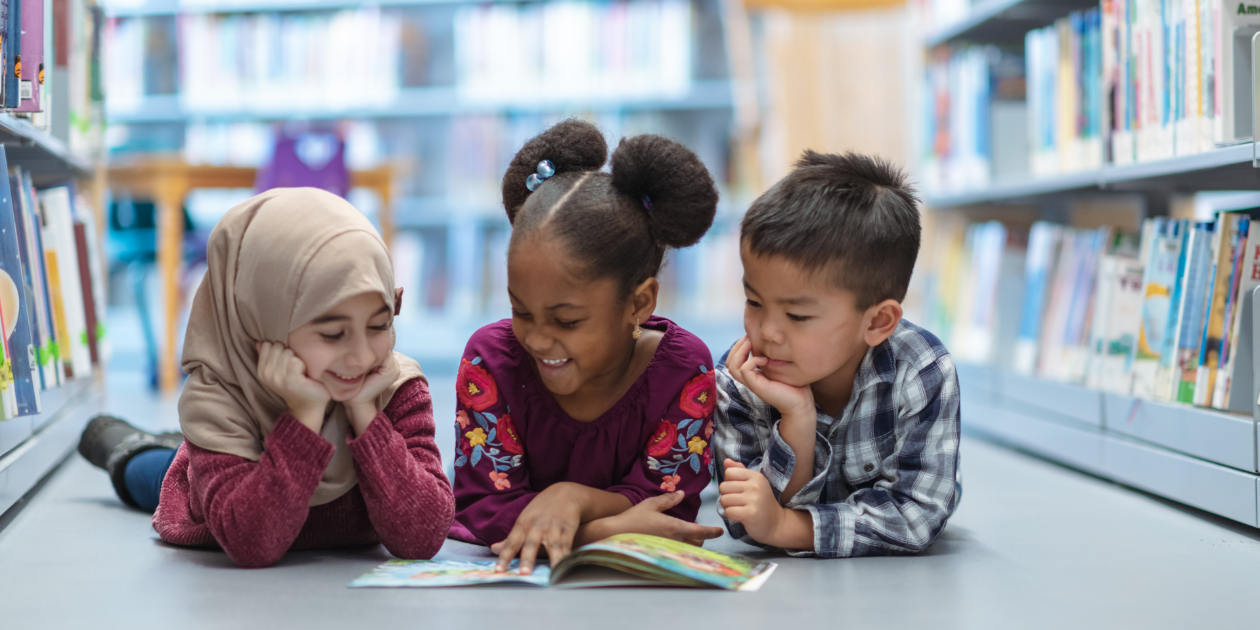
In the United States, there are many debates over the best form of schooling. One of the most heated debates is private vs. public education.
The most obvious difference between private and public education is the price tag. Every child in America can attend public school for free. However, parents may opt for their child to attend a private school. Most private schools cost money. This alludes to the fact that private schools must be “better” in some way to justify the monetary expenses. Both types of schooling offer unique benefits, and both have their respective drawbacks.
US News claims parents should look at a variety of factors when choosing a school for their child including rates of graduation and college enrollment, class size, diversity, and availability of programs for learning disabilities.
Private schools typically have smaller classes. This lets the students have more one-on-one attention with teachers. Whereas students in public schools can blend into the crowd of students in their classes. Thus, students will have different preferences for class size based on their personalities. Parents should take this into consideration when thinking about what is best for their child.

However, with larger class sizes comes vast diversity. Private schools’ price tags and strict screening can limit the diversity of its student population. Diversity helps students prepare for future careers since most workplaces consist of many different cultures and backgrounds. I am talking about diversity with minorities, social classes, and people with disabilities.
On this topic, students with disabilities do better in public schools. Public schools are closely regulated so that they follow guidelines to provide resources for students who need them. Private schools must also do this, but they are not under strict watch. Private schools are not funded as well as public schools, resulting in poorer resources for students with disabilities.
Fatherly explains that private schools hire more teachers that are fresh out of college and fewer teachers with master’s degrees. Since the only income private schools have is tuition payments from families, they pay their teachers less. This results in public schools attracting better teachers.

US News also digs into “how students in private schools score higher on standardized tests and score better across all subjects. However, it is hard to tell if private schools are the cause of this. Afterall, parents who have the resources and are willing to pay money for a “better” school probably help their students even more. They may be hiring tutors, paying for SAT practice books, and the like. Family attributes, like the parents’ education and social status, may be a more accurate explanation for the higher test scores.”
It is also important to note that parents who can not afford private schools send their students to public schools. Many low income students are not able to focus or put as much work into their education with their family’s lack of resources and money. When low income students are given fundings to attend private schools, they do not perform as well as those paying to attend. Yet, poor students being funded still outperform public school students (US News).
Another important fact to consider is that many private schools do not require the same certifications for their teachers. They stress subject area specialists. Public schools focus on core classes whereas private schools sometimes focus on certain subjects like music, art, or other content areas (Fatherly). Many parents who choose private schools do so for religious or extra-curricular reasons. Thus demonstrating that they care more about the particular private schools’ speciality than the “overall better” educational appeal.
To continue, Fatherly explains how private schools also have a “better peer environment.” This is due to the fact that they can screen who enrolls, resulting in only the type of student they want to attend their school. However, the real world works quite differently. Public schools teach students outside of the safe bubble of the socioeconomic upper class. So, public school students will understand how to deal with more challenging peers while private school students will be facing this issue for the first time in college or when they are working in the real world.
In conclusion, the decision to send students to private or public schools depends on what is best for the student. For families who can afford it, private schools lead to higher grades and test scores, a good, safe environment, and subject speciality. However, private schools lack diversity, can become costly, and do not embody the reality of the real world.
I enjoyed the fact that you incorporated pros and cons while analyzing both types of schools. Public schools, especially in highly populated areas are often understaffed and overcrowded. It seems as though this is one of the reasons public schools get a worse rep than private schools. However, for many families public schools are the only financially accessible option. I think if more funding went into the American public school system, everyone would be better off in general. Higher pay for teachers would incentivize more employees, more efficient resources would be available to students, and in turn going to school in the US would be a more fair experience as private school graduates would no longer have a huge advantage over public school graduates. I do understand that private school students essentially pay for better connections and a “better” education all around but there is a part of me that believes good education should be free and equally accessible to everyone. Although this is true in other countries, it may not work in the US as it would require a considerable amount of reform/change, something the US has always been relatively “slower” at.
I definitely agree there are many problems with public schools. One example is how low-income areas have worse schools since schools receive their money from property taxes. I am setting up my CI blogs to always compare to public schools because they are the default school in America. I agree that a good education should be free for all students in the US. However, we must always remember that the upper class will try to set themselves apart by creating “better” schools to keep a massive class divide. No matter how great public schools become, the rich will find a way to prevent social mobility.
At first, I thought it was factual that private schools were a much better option but at a second glance, this seems to be a back and forth battle. The price tag is a real concern for many. Those who are willing and able send their children to private schools seeking a better education. But this is not always the case. I believe that the school does not determine their success rather their motivation and accessibility to resources. If every child were to have private tutors and fancy textbooks and study materials of course they are going to do better. I also have a huge issue with the lack of diversity between the student body and regulations placed upon the school board. This is detrimental in preparing students for the real world and can lead to issues expressed in critical race theories. Following a personal story, my dad was sent to a private catholic school growing us as a kid in order for his mother to try to was his native American heritage out of him along with strictly disciplining him. Later on, he was sent to a public school where he ended up doing much better. Being the rebel he was, he still did not get the best grades but he acted out less and was able to graduate. In my opinion, public schools are the safer option but if you have the money and resources at your disposal, use them as you see fit.
I thought that private schools were always “better” before I did research, too. Honestly, it is a way for the upper class to separate their children from the middle and lower classes and keep the connections within their social circle. I absolutely agree that public schools are better for many people, especially students who do not care about school. After all, the students are the ones that must put in the effort. My angle was that if private schools cost money then they must be “better” in order to be at the same level of value as public schools. I know someone who went to a private catholic school to play volleyball because they had a better program. I am sure there were other reasons, but it seems parents care more about a particular private school’s programs or amenities.
I have attended both private and public schools throughout my life. There is no doubt that both schools have their own pros and cons. No matter what kind of education someone receives, the most important factor is how the agent applies their self. If someone chooses a private education, but does not apply their maximum effort, they are wasting time and money. I found that my private high school helped me branch out of my hometown, and meet different kinds of people.
Additionally, I think you did a great job at framing this post. You listed a significant amount of pros and cons for both sides, and made the argument clear. I think your point on government funding and how public school teachers are paid more is an interesting topic. Its funny to think that the better teachers are drawn to public schools.
Because my mother is a teacher, I always knew that public school teachers were paid more. But it is weird how the “better” private school pays their teachers less. I definitely agree that school success is up to the student. However, parents are usually the ones that decide which school to send their children to. Parents must decide what is best for their student.
It is weird it is simple economics. Public schools draw from taxpayer dollars to fund teacher salaries. Also, most private schools don’t have teachers that are part of the union.
As someone who has attended public schools throughout my whole education, growing up I always thought private schools provided a better education than public schools. However once I got to high school, I realized that is not always the case. Both options have their pros and cons and I believe if parents feel more comfortable sending their child to a public or private school that should be their choice. However, after reading your post I feel that there is a lot of unfairness when it comes to private schools. For instance the lack of diversity, fewer resources for disabled students, and the lower salary for teachers. In the end parents will choose where they want their children to attend school based on their own beliefs and desires for their children.
I also thought private schools were “better” growing up. However, most private schools are honestly not “better” enough to be considered worth the money or effort. Some private schools might be really good – especially if the public school in your area is bad.
Catholic schools produce the best citizens.
It’s great that you mentioned how private schools typically have smaller classes. My little sister is about to step into the next stage of her education and we are now looking for a school that would work for her. She might do well in a private high school, so we are considering enrolling her in one.
https://www.firstpresacademy.com/academics/high-school
Which of the following is typically NOT a characteristic of private schools?
Regard IT Telkom